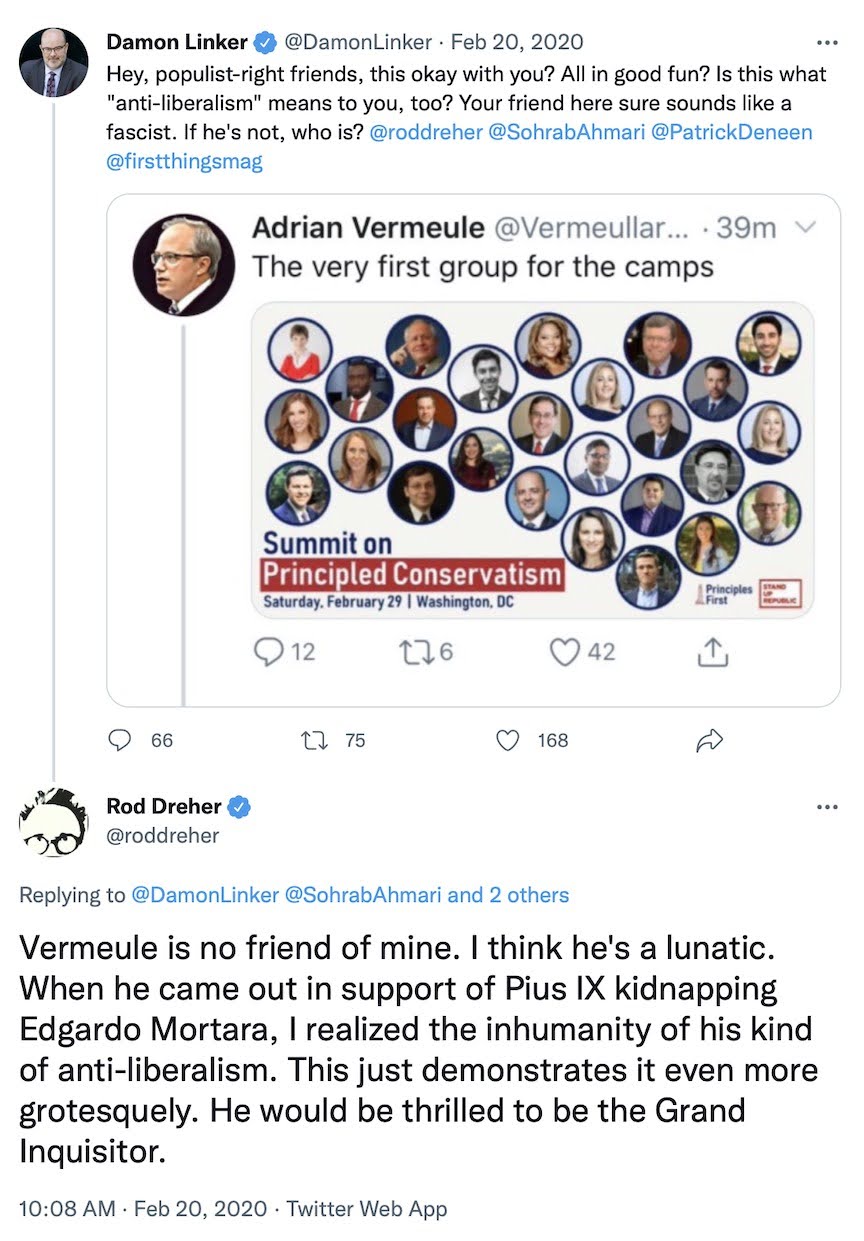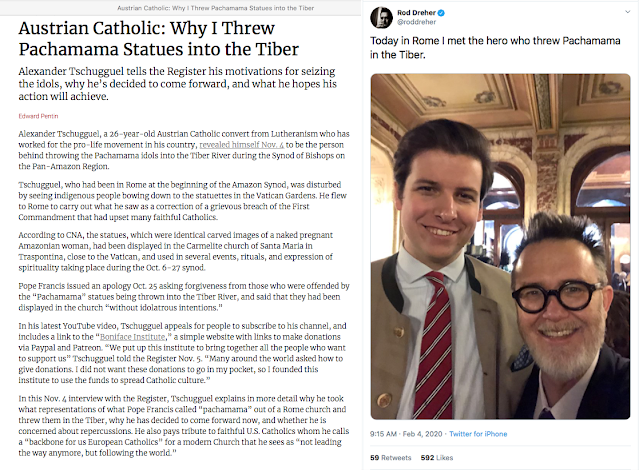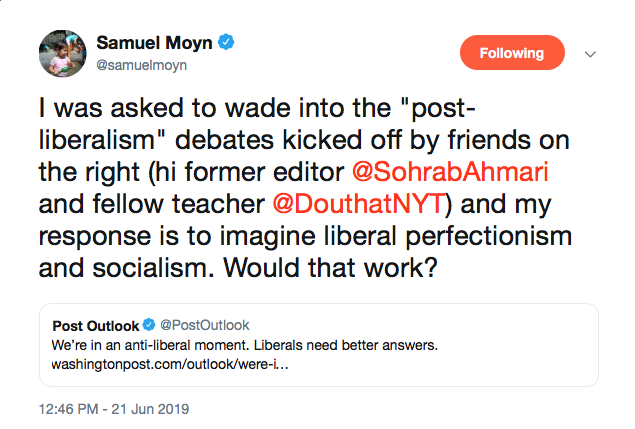"For the aesthetic in general as an expression of the supreme ultimate value of a system can influence the result of ethical action only secondarily, just as “wealth” is not the main goal but the side effect of individual commercial activity. And “wealth” itself is an irrational concept. It is an almost mystical process, the setting of ethical values: Arising from the irrational, transforming the irrational to the rational, yet nonetheless it is the irrational that radiates from within the resulting form."
Hermann Broch
Jack Balkin debates fascists.
The republican tradition certainly hopes that citizens and officials alike will possess civic virtue and be devoted to the common good. At the same time, it does not assume that government officials will in fact have civic virtue and be adequately devoted to the public good. Republican theory focuses instead on the fact that republics are difficult to maintain and easily corrupted; that government officials—and especially executive officials—are likely to engage in self-aggrandizement, self-dealing and a desire to maintain power; that representative government can easily slide into oligarchy; and that public officials will undermine the public good in the process. Anyone who has lived through recent American history can understand the contemporary relevance of these ideas.
Vermeule, by contrast, is comparatively complacent about these questions. Along with Eric Posner, he coined the phrase "tyrannophobia" to describe an excessive concern with government overreaching, self-aggrandizement and illegitimate attempts by rulers to entrench themselves in power.
But what Vermeule regards as a pathology of thought is actually a central idea in the republican tradition—and the liberal tradition as well. It is precisely because of a deep concern that public officials will become corrupt, misbehave, or try to entrench themselves in power that the republican tradition has focused on questions of separation of powers, checks and balances, rule of law limitations, and rights.
Balkin's contribution as part of a symposium that includes more than one: Vermeule and an earnest defender. There's a time for choosing honey over vinegar, and those are Balkin's words, but this ain't it.
repeats: Leiter's model of academic discourse, paraphrased
Universities would deserve criticism for rejecting a presentation by the authors of the Nuremberg Laws, but would be right in rejecting a speech by a rabble-rousing journalist who promotes them.
John Quiggin, 2008: "Sunstein argues that the echo chamber effect tends to reinforce existing views and produce a poisonous partisan divide. It seems to me that exactly the opposite is true. "
repeats
I always thought Sunstein's point was obvious, especially for any culture founded on individualist liberalism. It's that culture that's given us Facebook and surveillance capitalism and personalized marketing, the virtual store where the displays are changed and items moved to the front to fit your last purchases. Newsfeeds work the same way, reinforcing biases, from narrowcasting to microcasting to the narcissism where the world is reduced to a mirror.
Twitter changed its algorithm years ago, forcing you to choose between replying to a tweet and quoting it, limiting the exposure of either your followers or those of the person you're replying to. Up to that point a reply appeared on both timelines.
Ryan Cooper
Have you ever argued with a conservative? They won't learn anything no matter what I say or where I say it. Whatever I say is wrong by definition.
The same is "true"—the same facts hold—for liberals, and for most people. They hold for Cooper.

The web was made by techs and in the Anglosphere self-selected for technocratic culture—I haven't used that link in a while. It's was made for talking to your friends, not for argument. I was told that 20 years ago. It's the model of civility, contempt and passive aggression basic to academia under the pretense that academia, educated liberals, the elite, the licensed vanguard are just that. It was always bullshit. Balkin, practicing "high politics" treats Vermeule as a friend. He's from the same tradition as Panofsky, but he's weaker. He called Vermeule and Posner "fine young scholars", when they defended legalized torture. I had more patience in 2004.
Balkin has a tag. Vermeule has one. I emailed Balkin as I do sometimes, to ask him why he's done it again, ceding ground to opponents of democracy.
I've gotten drunk with honest reactionaries. They're better company than hypocrites. I cede them nothing. But I have more contempt for liberals like Cooper who are blind to what they are.
If everything is political, then high politics and low politics both have their place. There's a time for debate and a time to stand on principle and walk away. If you don't understand both you don't understand either.
Dreher, 16 days earlier:
repeating the link above.
Most arguments against mass surveillance don't respond fully substantively to claims that you shouldn't worry if you "have nothing to hide". Defense of personal freedom isn't enough. What's needed is an argument in defense of the need for citizens in a democratic state to be able to be all kinds of wrong, all kinds of confused, creepy, conflicted, desirous, weepy or hate-filled, so that they may be able to learn to understand and outgrow their childishness. The choice is between a community of adults with a minority of the inveterately childish and criminal or a community of children ruled by moralists and crime lords.
Freedom of speech is the right to argue for freedom of property. Those who defend freedom of property are among the first to oppose freedom of speech. I support Vermeule's right to be a fascist, but an earnest engagement with his ideas is to take fascism seriously as an intellectual position. Allowing the argument to exist does not mean treating it with respect. It means destroying it, again, and again.
"It is the common fate of the indolent to see their rights become a prey to the active. The condition upon which God hath given liberty to man is eternal vigilance; which condition if he break, servitude is at once the consequence of his crime and the punishment of his guilt."
I like Balkin, but he's a law professor, not a lawyer. He's passive. He's not a legal philosopher—they all suck—but he doesn't understand the importance of vulgarity.
I forgot I'd used this with Vermeule already. All I do is repeat myself.
…in a hospital tent at the clearing station I came across a man with a French flag wrapped around his waist; the medics discovered it when they cut his shirt away. He was a hard-looking, blondish chap with a mouthful of gold teeth and a face adorned by a cross-shaped knife scar—the croix de vache with which procurers sometimes mark business rivals. An interesting collection of obscene tattooing showed on the parts of him that the flag did not cover. Outwardly he was not a sentimental type.
"Where are you from?" I asked him.
"Belleville," he said. Belleville is a part of Paris not distinguished for its elegance.
"What did you do in civilian life?" I inquired.
That made him grin. "I lived on my income," he said.
"Why did you choose the Corps Franc?"
"Because I understood," he said.
And again: thugs against fascists
"He was always a loser, a jest/he barely got 50% on his high-school test/with a bribe the rich kid's a fool no more/got 100 diplomas hanging on his door/You crows nesting in our house/why are you ruining all our fun?We won't do as you tell us/Spare us your face/Cook up your case/That's what the Interior does/I'm arrested and charged as a terrorist/Just for holding a flare and singing Ahly"
All philosophy is perverse.





No comments:
Post a Comment
Comment moderation is enabled.